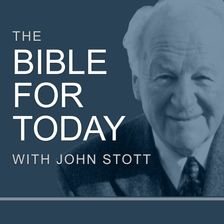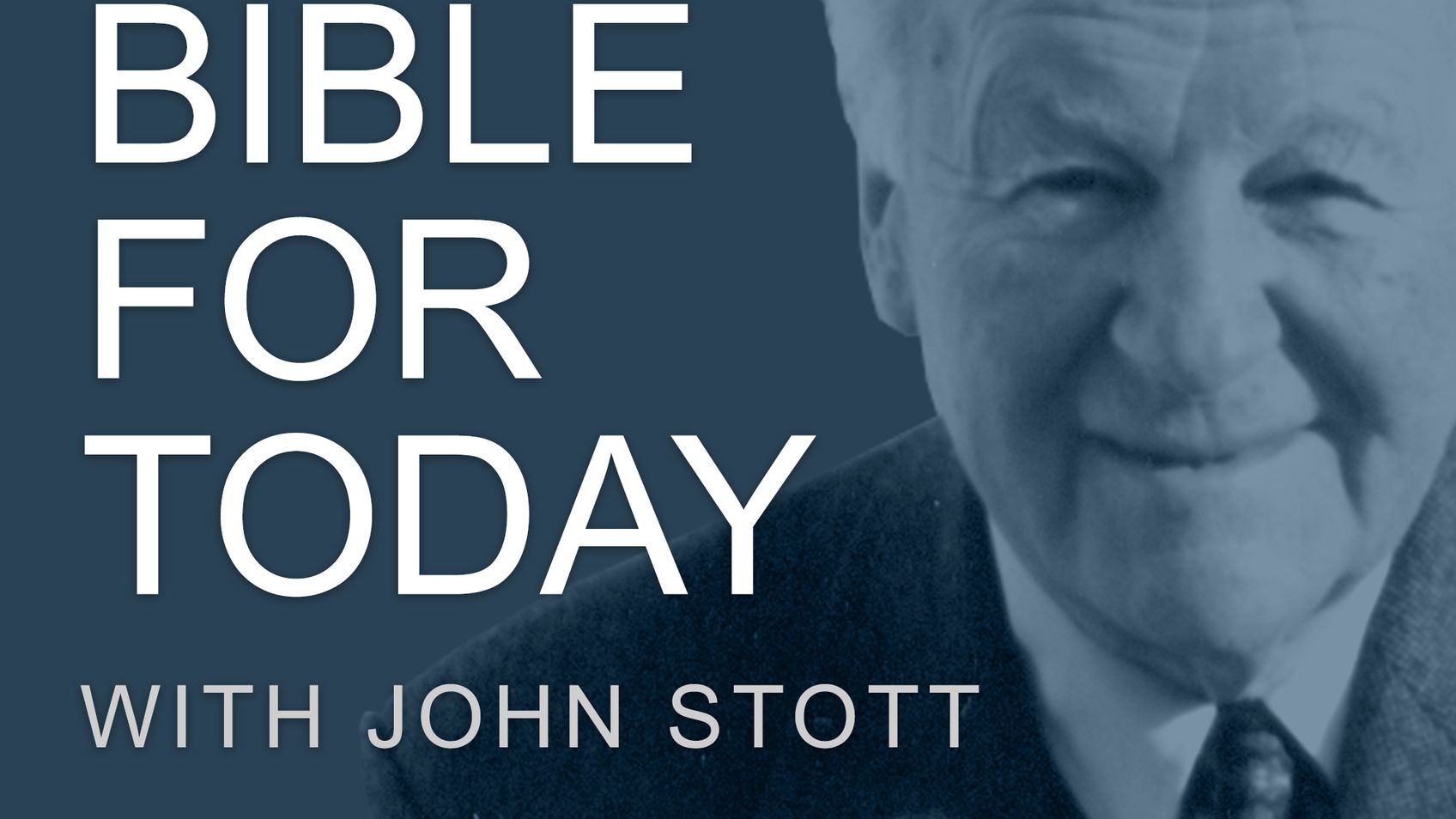Repudiating Greed - Part 2
November 14, 2021

The Bible for Today with John StottPremier
John Stott explains what the apostle Paul meant about slaves and masters in the context of his day. John also shows us how to identify false teachers and begins to set out the basis of how we should handle our money as Christians.
More From The Bible for Today with John Stott

More Than He Bargained For - Part 1
The Bible for Today with John Stott
November 21, 2021
John Stott carefully analyses the miraculous healing of the lame man recorded in Acts 3. John asks why that particular event was recorded and whether

More Than He Bargained For - Part 2
The Bible for Today with John Stott
November 28, 2021
John Stott explains why the healing of the lame man in Acts 3 was recorded, what Luke wanted his readers to learn from it and what lessons it has for

Qualifications of Christian Leaders - Part 1
The Bible for Today with John Stott
December 5, 2021
John Stott explains that the health of the local church depends on the quality of its leaders. He shows that pastoral leadership was always God's purp

Repudiating Greed - Part 1
The Bible for Today with John Stott
November 7, 2021
John Stott explains what the apostle Paul meant about slaves and masters in the context of his day. John also shows us how to identify false teachers

Christ Will Come Again - Part 2
The Bible for Today with John Stott
October 31, 2021
John Stott describes the certainty of Christ's return even though its timing cannot be predicted. He warns of the need to be ready for when Christ ret

Christ Will Come Again - Part 1
The Bible for Today with John Stott
October 24, 2021
John Stott uses Scripture to dismantle the objections often raised against the return of Jesus. John shows why Christ's return is the only event Chris
More on OpenTheo

Why Would Any Rational Person Have to Use Any Religious Book?
#STRask
December 8, 2025
Questions about why any rational person would have to use any religious book, whether apologetics would be redundant if there were actually a good, un

Why Are So Many Christians Condemning LGB People Just Because of How They Love?
#STRask
January 15, 2026
Questions about Christians condemning LGB people just because of how they love, how God can expect someone to be celibate when others are free to marr

How Do We Advocate for Christian Policy Without Making the Government Interfere in Every Area of Life?
#STRask
November 20, 2025
Questions about how to advocate for Christian policy without making the government interfere in every area of life, and the differences between the mo

Why Should We Pray If God Already Knows What’s Going to Happen?
#STRask
January 29, 2026
Questions about why we should pray if God already knows what’s going to happen, how the effectiveness of prayer is measured, and whether or not things

Does God Really Need a “Pound of Flesh” to Forgive Sins?
#STRask
January 12, 2026
Questions about how to answer the challenge that God doesn’t need a “pound of flesh” to forgive sins but can simply forgive, and whether the claim in

The Making of the American Mind with Matthew Spalding
Life and Books and Everything
February 2, 2026
The United States is unique in how much attention it pays to its founding, its founders, and its founding documents. Arguably, the most famous and mos

Is 1 Corinthians 12:3 a Black-and-White Tool for Discernment?
#STRask
October 27, 2025
Questions about whether the claim in 1 Corinthians that “no one can say ‘Jesus is Lord’ except in the Holy Spirit” is a black-and-white tool for disce

Is It Possible There’s a Being That’s Greater Than God?
#STRask
February 5, 2026
Questions about whether it’s possible there’s a being that’s greater than God and that’s outside of God’s comprehension and omniscience, and how to ex

E. Calvin Beisner: Climate and Energy Policy
Knight & Rose Show
January 4, 2026
Wintery Knight and Desert Rose welcome Dr. E. Calvin Beisner to discuss climate and energy policy. They explore Biblical dominion and stewardship, con

Lora Ries: Border Security and Immigration Policy
Knight & Rose Show
December 7, 2025
Wintery Knight and Desert Rose welcome Lora Ries to discuss border security and immigration policy. They explore Biden's policy changes, like ending R

Conservatism and Religious Freedom with John Wilsey
Life and Books and Everything
October 27, 2025
What is conservatism? And why does it go hand in hand with religious freedom? How should we think about the American experiment of ordered liberty? Ha

Are You Accursed If You Tithe?
#STRask
December 15, 2025
Questions about whether anyone who tithes is not a Christian and is accursed since Paul says that if you obey one part of the Mosaic Law you’re obliga

The Heidelberg Catechism with R. Scott Clark
Life and Books and Everything
November 3, 2025
You may not think you need 1,000 pages on the Heidelberg Catechism, but you do! R. Scott Clark, professor at Westminster Seminary California, has writ

Could the Writers of Scripture Have Been Influenced by Their Fallen Nature?
#STRask
October 23, 2025
Questions about whether or not it’s reasonable to worry that some of our current doctrines were influenced by the fallen nature of the apostles, and h

Why Does the Bible Teach You How to Be a Proper Slave Owner?
#STRask
November 13, 2025
Question about why it seems like the Bible teaches you how to be a proper slave owner rather than than saying, “Stop it. Give them freedom.”
* It s
